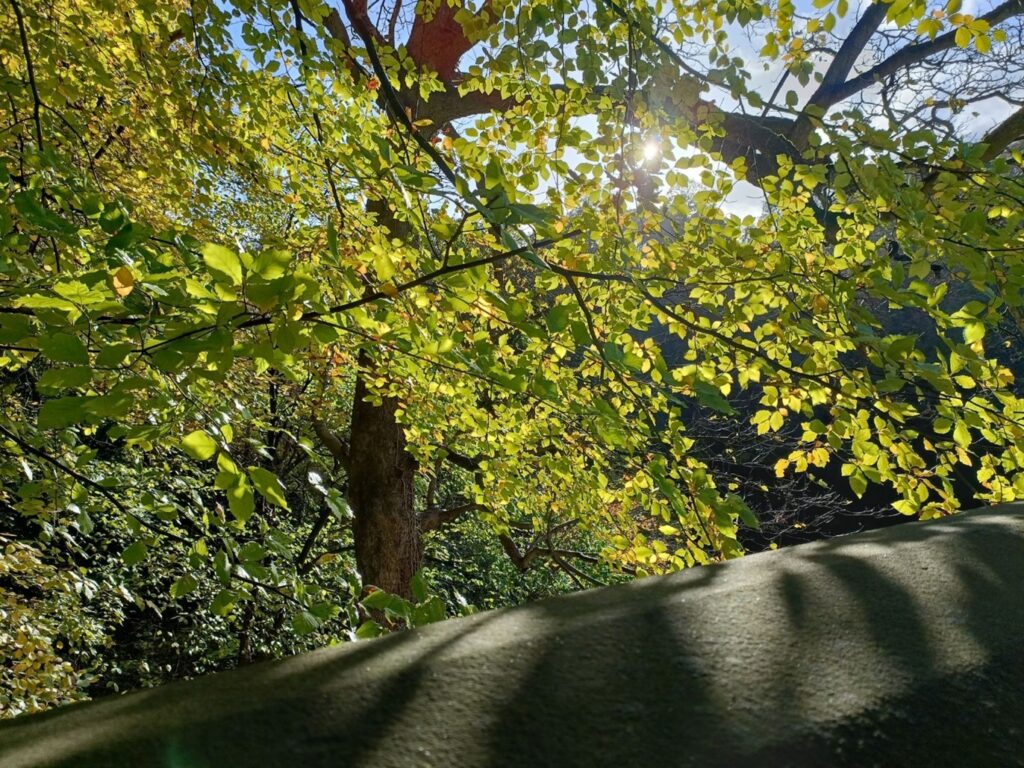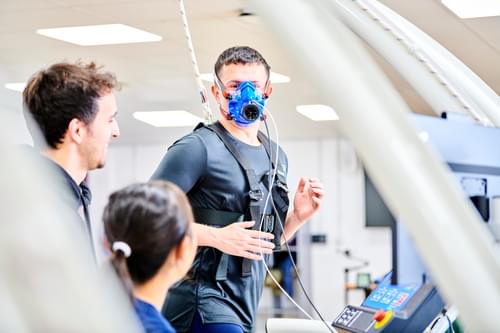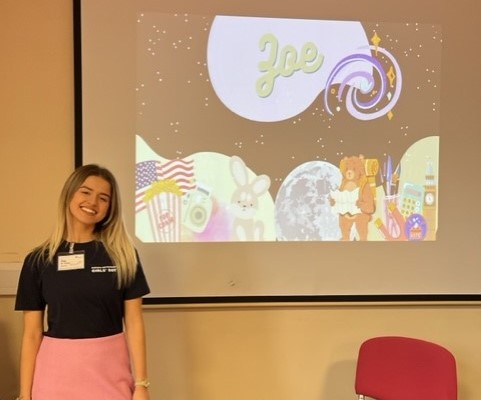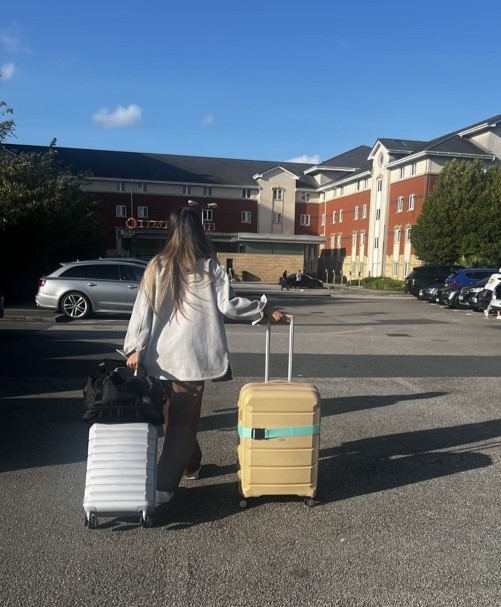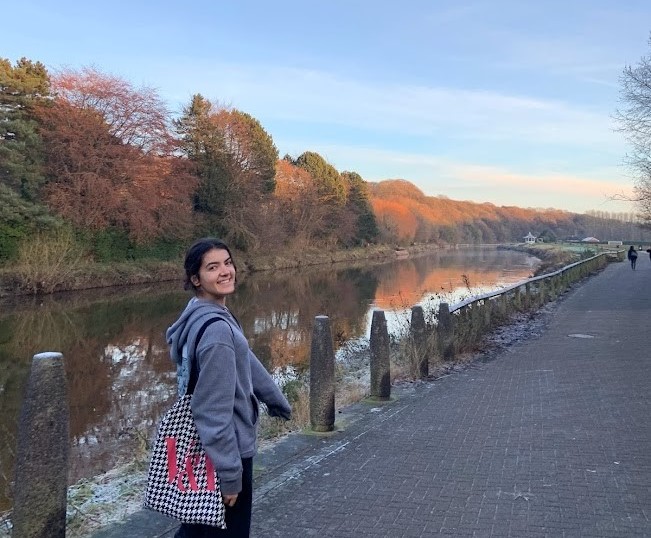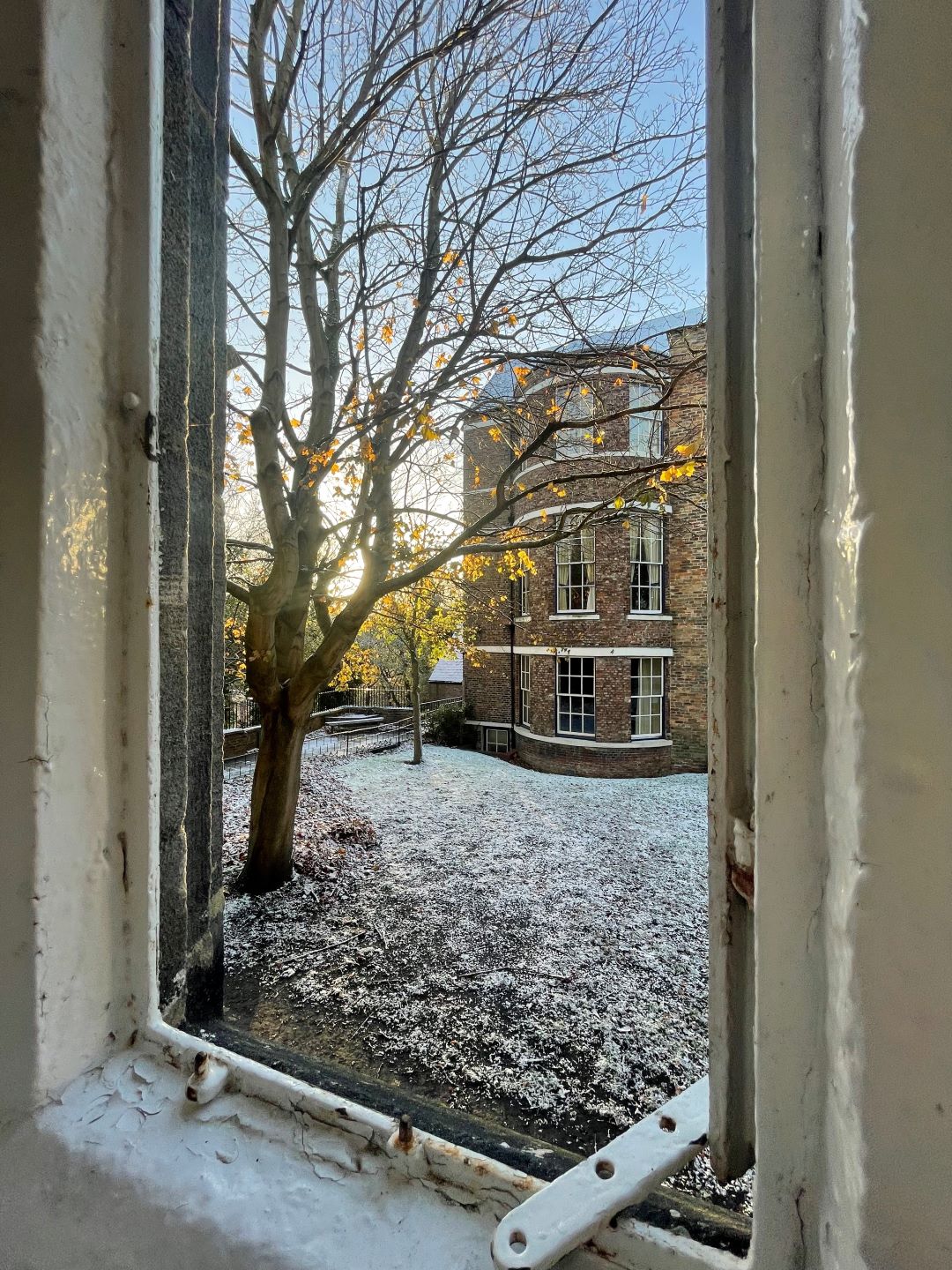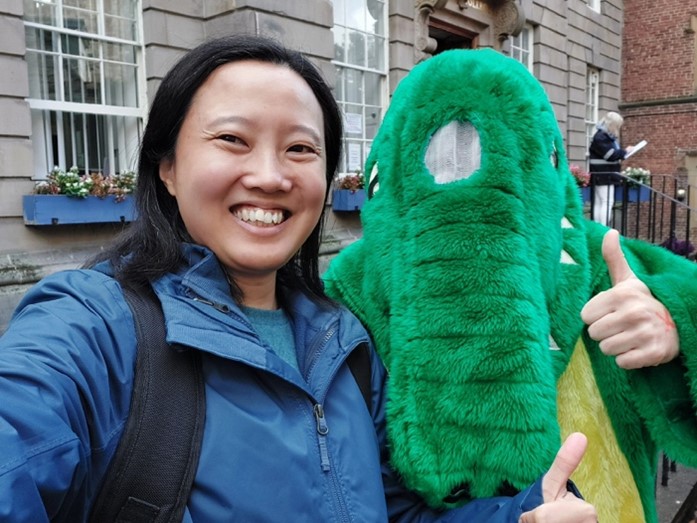November tends to be a bit of a weird time in the academic year. Frost, first summatives, muddy leaves on the way back from lectures, bonfires and mist in the afternoons as well as the mornings. After just settling into a new course, it’s already halfway through the term. Halloween has largely been tidied away except for the occasional mouldy pumpkin, but most November-December celebrations are still several weeks from now – and there’s a fair amount to do before the end of the month. Here in Durham, it’s not unusual to enter a building in decent winter-angled sunlight and leave it after about 5pm in complete darkness. And alongside all of this, for those of you in the third and fourth year – alongside dissertations and final projects – if you’re an undergraduate this might also be the time you start seriously considering the possibility of continuing studies.
With COP27 getting underway and the discussions around sustainability, energy, and whether we’re addressing dangers to the environment likely to increase in frequency and intensity over the next couple of weeks, now seems like it might be a good time to briefly discuss my own course, Sustainability, Energy and Development MSc as an example of what postgrad life might be like. I hope it’s useful! : )
Reasons for going on to Postgraduate
There are many reasons why people choose to do a postgraduate degree. Some might be returning to university after a few years working; others are specialising in the case of taking on a postgraduate certificate in education (PGCE) or maybe converting from another course as with a Law conversion. Perhaps you’d like to explore a concept more. Perhaps you’re interested in conducting further research yourself. Recently the idea of a ‘panic masters’ has been floated, but without adding to this debate it’s not unusual for students to learn more about where they’d like to go on to in the postgraduate year, particularly with recent global upheavals to learning.
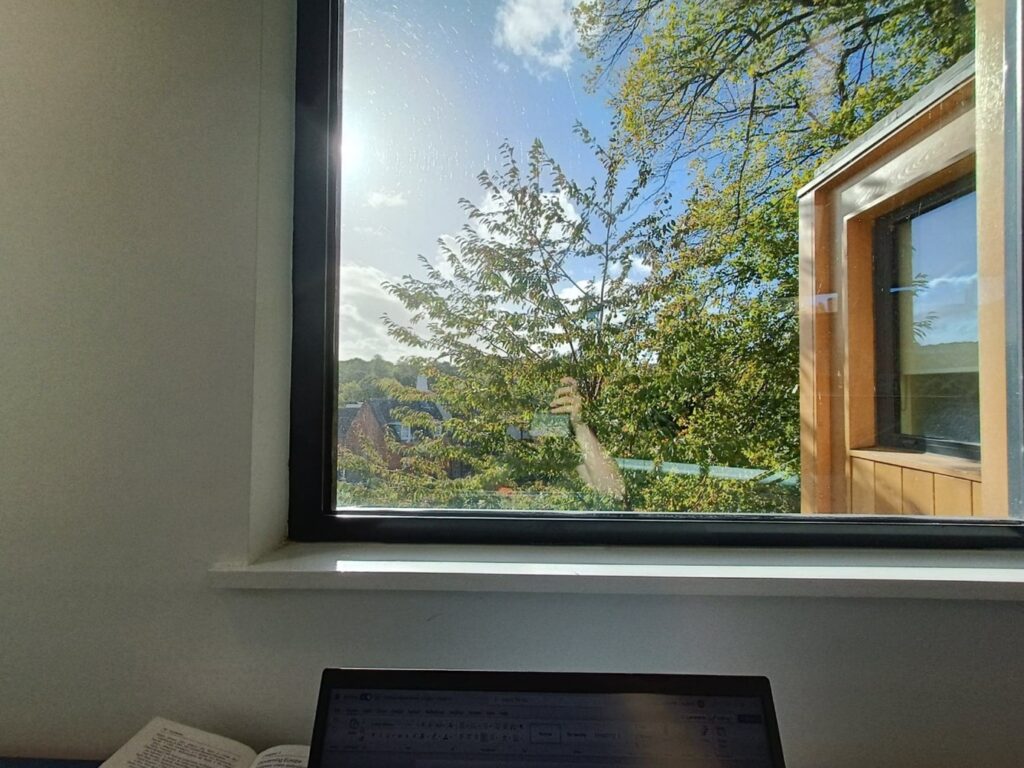
There are a couple of ways students commonly take a master’s in Anthropology-adjacent subjects; these can largely be divided into Postgraduate Taught (PGT) and Postgraduate Research (PGR). Courses might look something like this:
Postgraduate Taught
MA/MSc (Master of Arts/Science) – A postgraduate degree achieved through fulfilling learning expectations and commonly a final project, either an academic or vocational dissertation.
Postgraduate Research
MRes (Masters by Research) – A postgraduate degree achieved by conducting an independent supervised research project.
In the Department of Anthropology at Durham (to use a familiar example), taught courses might include Global & Planetary Health, Medical Anthropology, a deeper analysis of Research Methods, or Sustainability, Energy and Development (SED). Different master’s courses also provide different challenges: taught courses generally take place over 1 year full-time or 2 years part-time and are packed with teaching, reading, and assessments completed at a higher standard than at undergraduate – ideally approaching publishable quality. Research masters comparatively provide greater independence and are centred on research, but this is again a significant challenge to take on. There are many hurdles to keeping a project (and yourself) on track. Both can also form part of the pathway to a PhD, if that’s something you’d be keen to pursue.
For the most up-to-date information, it’s best to look over the website of a university you’re applying to, as well as chatting to staff and students on that course if possible!
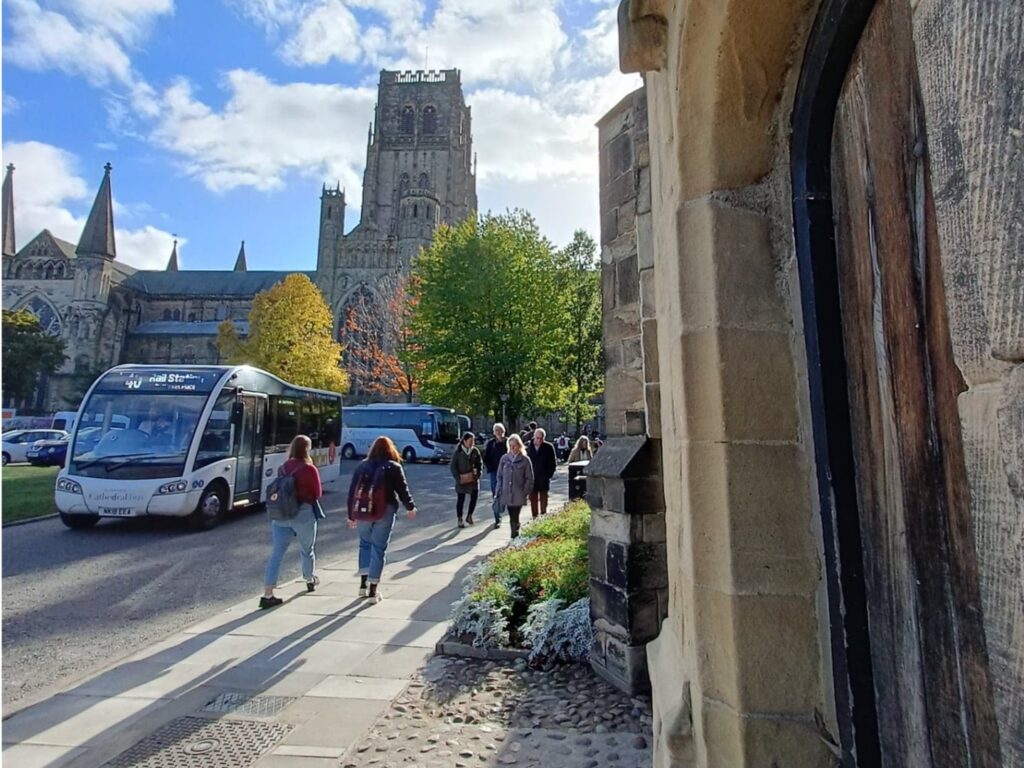
For me, I chose my course for a couple of reasons. On the surface, it’s difficult to miss how critical an issue energy is becoming, not only as an environmental concern but the influence it has had on national and international politics. More personally I’ve been lucky to complete a few weeks of early undergraduate research as part of the Laidlaw programme here, related to the topics I’m covering now. Coupled with a short research internship with a group working on interparliamentary idea-spreading, studying the social aspect of sustainable development was a topic I wanted to understand a bit further. For me, the master’s was an opportunity to do this. But even within a small interdisciplinary course like SED, there’s a huge range of paths and backgrounds – from civil engineering to international relations to zoology.
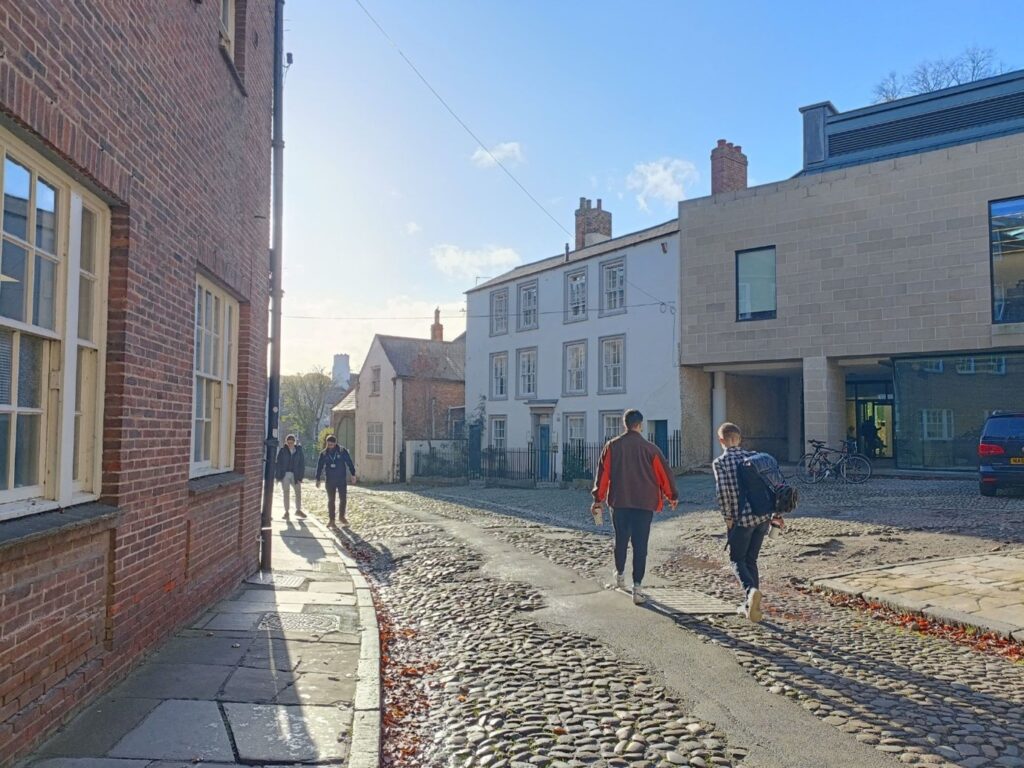
Why Durham?
Alongside the course itself – as well as familiarity with a gorgeous and exceptionally green city – for me, Durham has a great set of resources to complete the course with.
The course is small, around twenty people per seminar, which means more discussion and interactive tutoring style – a style I prefer! Most activities continue to be within walking distance or accessible via public transport; it feels good to not have a huge carbon footprint while studying, where possible. Among other groups on campus, Durham’s Institute of Energy and Institute of Hazard, Risk and Resilience are perfectly situated for further seminars; the Department of Anthropology is likewise arranged into research groups, who regularly give talks and research updates. These can be amazing for interdisciplinary work and understanding where the discipline is heading.
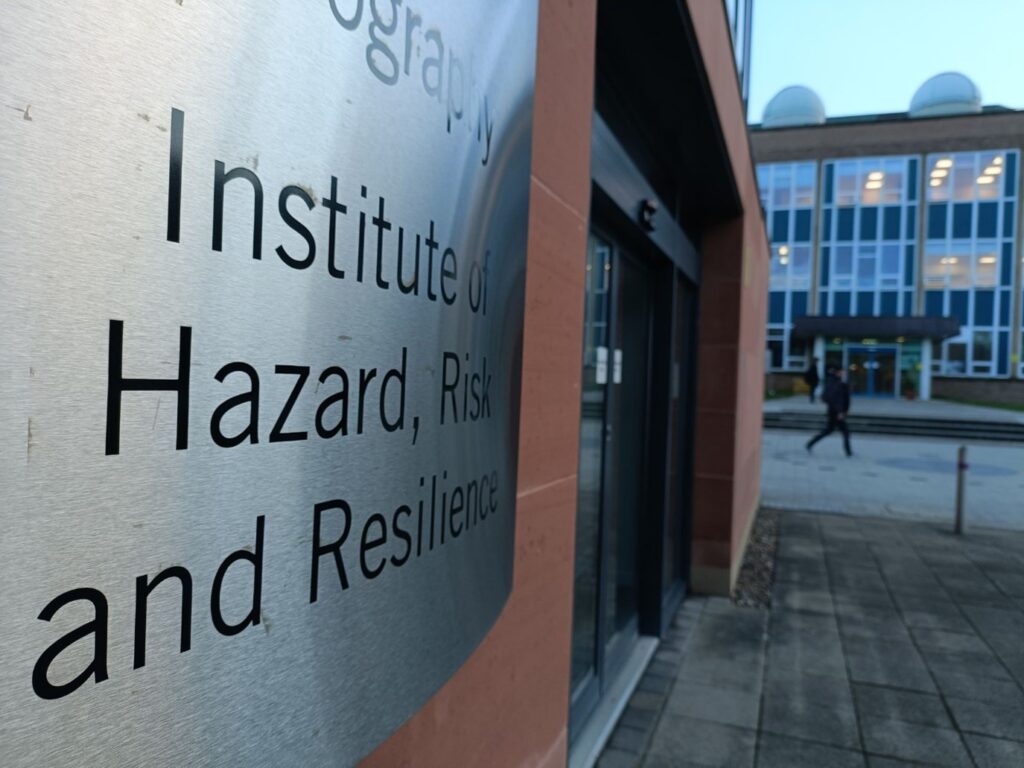
There are also the inter-university (N8) and international relationships the departments hold; in the annual intensive teaching week for the course last week, connections with Oslo and the Matariki group through the University of Otago made the week particularly special. The opportunity to learn from universities across Europe and the globe and understand their research is again a critical benefit, something that can be underappreciated outside of these encounters. The main library is also a fantastic database if a little packed – my personal preference for studying is St John’s college library these days, as well as the department’s student-staff common room!
So, if studying sustainability and climate projects takes your fancy, I hope this has provided a little snippet of areas you might want to look at when choosing a course. Stay tuned for more blogs around sustainability over the coming weeks; writing this has reminded me of a few other groups around campus that might be good to compile soon… but in the meantime, good luck! : )
Discover more
Our Anthropology Department is one of the largest in the UK and is ranked 29th globally (QS World University Rankings by Subject 2022).
Fieldwork is core to our taught programmes, and we offer research-led teaching and hands-on experience to equip our students with the knowledge and skills they need for a successful future.
Feeling inspired? Visit our Anthropology webpages for more information on our undergraduate and postgraduate programmes.
Matthew Fackrell
Hi! I’m Matthew, a recent postgraduate studying Sustainability, Energy and Development (MSc) in the Department of Anthropology. Having focused on photography, videos, and blog content with The Durham Student, I am currently exploring sustainability research and public engagement more broadly. When not working or studying, I can be found browsing used bookshops, outdoors, or spending time with cats - especially at home around Bristol.

